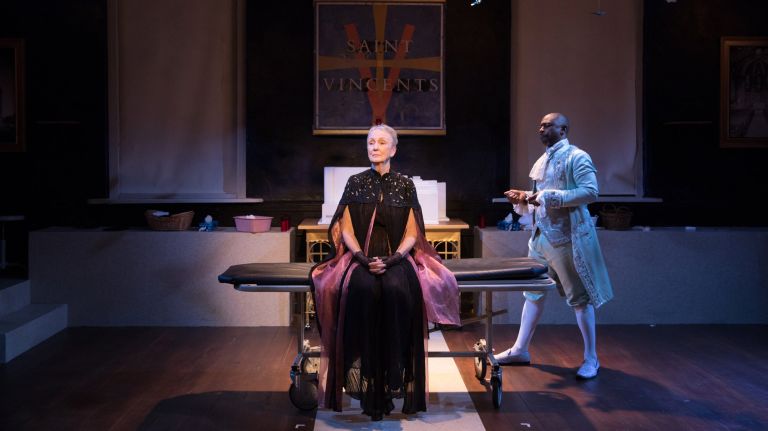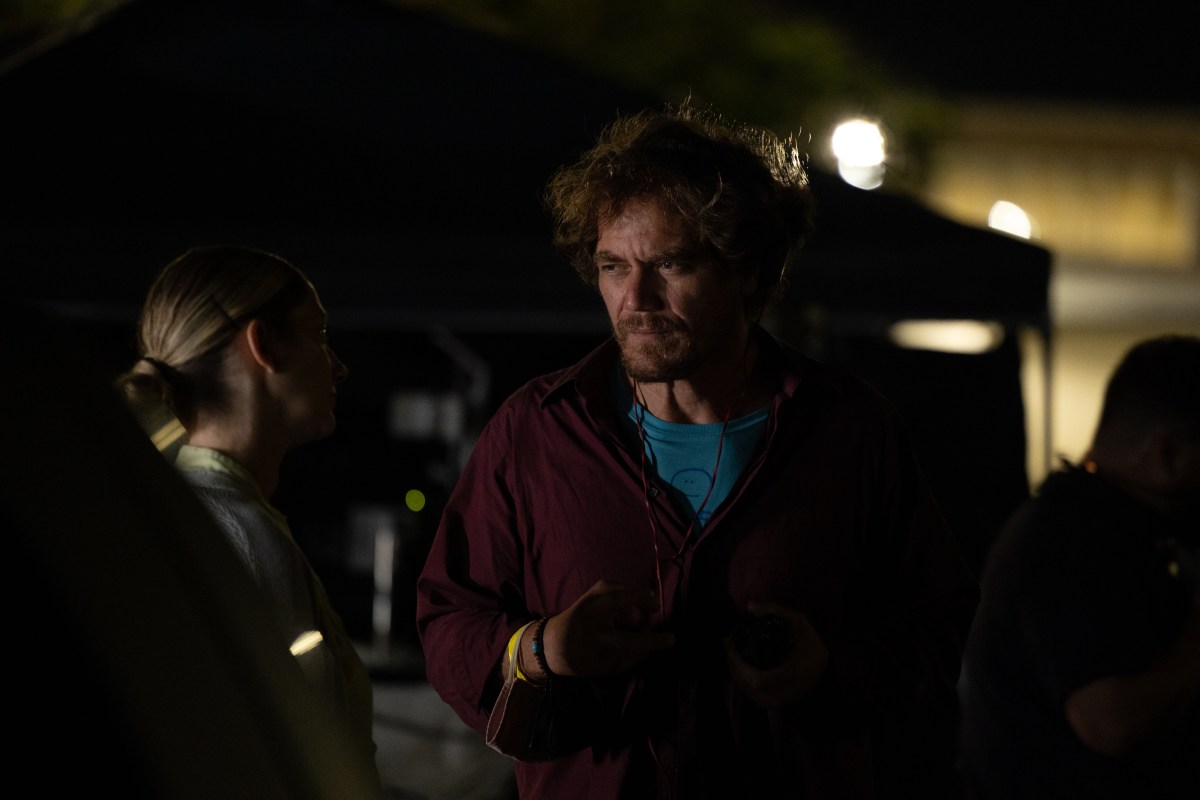
‘Novenas for a Lost Hospital’ runs through Oct. 13 at the Rattlestick Playwrights Theater. 224 Waverly Place, rattlestick.org.
“Nurses trained here. Doctors healed here. Babies were born and people died here. So many glorious and inglorious exits. How do we hold that memory when the bricks are all gone?”
So wonders Elizabeth Seton, the first American-born Saint, in Cusi Cram’s “Novenas for a Lost Hospital,” a time-shifting journey through the 161-year history of St. Vincent’s Hospital, including its founding by the Sisters of Charity amid a cholera epidemic, its critical role in treating AIDS victims in the 1980s, its closure on April 30, 2010 amid overwhelming debt and demolition to make way for luxury condos.
Seton (played with luster and good humor by stage veteran Kathleen Chalfant, whose credits range from the original production of “Angels in America” to “The Affair” on Showtime) explains that the cast and audience will memorialize St. Vincent’s through “Novenas,” a nine-part series of prayers and petitions.
She is joined by the 19th century Haitian hairdresser and former slave Pierre Toussaint (Alvin Keith), as well as doctors, nurses, nuns and patients (including one nicknamed Lazarus, who miraculously keeps coming back to life despite complications from AIDS).
At various points, the characters debate the causes of the hospital’s demise (ranging from mismanagement to political neglect and the economics of health care) and question whether the city is losing its soul and who will care for the sick when the next “plague” occurs.
The roaming production (directed by Daniella Topol) begins in an enclosed courtyard next to Saint John’s in the Village, where a group of actors, singers and musicians perform a prologue. The audience is then sent along to the Rattlestick Playwrights Theater for the play. It is later ushered to the NYC AIDS Memorial at St. Vincent’s Triangle for a site-specific epilogue.
Many of the scenes are thin and drag; the overreliance on narrators is choppy and corny, and the pop music dance breaks (to the tune of “Do the Hustle” and “Come and Get Your Love”) are more bewildering than playful.
Nevertheless, “Novenas for a Lost Hospital” makes for a soulful theatrical experience with a social activist bent that celebrates “those who care enough to care” and expresses an urgent concern for the city’s future.






































